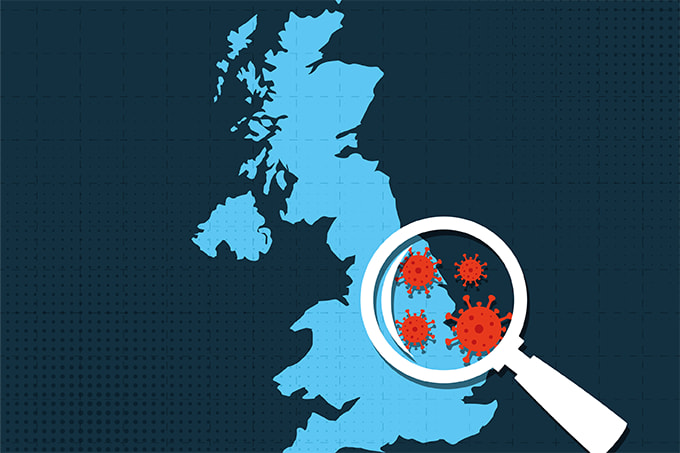
Nothing brings people together like a crisis. For those of us in the scientific community, all it takes is a global pandemic.
As a virologist, basic scientist, and translational researcher, I am interested in emerging viruses. My laboratory studies pathogens that predominantly affect people in countries with few resources and weak or nonexistent public health systems. Our goal is to develop vaccines and therapeutics that will help underserved populations suffering from these emerging infections.
Many viruses are constantly emerging that do not manifest as pandemics, but are endemic to specific regions. My lab works on viral agents that are household names – such as Ebola, Marburg, and West Nile – as well as those less familiar to the public. We’re part of an international consortium focused on developing antibody-based therapies against these and other life-threatening diseases.
Here in the Bronx, we see a diverse population from all over the world. Many are underserved individuals with more complex genetic backgrounds to their immune systems than are generally observed in less diverse communities. They are often people at higher risk for lifestyle diseases such as diabetes, which have their own complications and affect people’s ability to respond to infectious diseases. It’s also a mobile population; for example, many folks travel back and forth between the Bronx and the Caribbean to visit family. During their travels, they may become carriers of viruses or mosquito-borne infections not yet common in the US. This can present a public health problem, but also provides us with opportunities to develop therapeutics by isolating naturally occurring human antibodies that people in the Bronx have generated in response to infection.
Until COVID-19, my laboratory had never really worked with pathologists; we sourced clinical samples from outside clinicians. Then, in January 2020, SARS-CoV-2 shook the world. An American traveler returning from Europe brought it to our shores, making the New York metropolitan area the early US epicenter. The Bronx became the “epicenter of the epicenter” – and a partnership was born at Montefiore Einstein.
I knew some of our pathology faculty in passing, but others I had never met before. During the first COVID-19 surge, we came together and worked closely for more than a year. In all of those interactions I was – and continue to be – impressed with their professionalism, entrepreneurial spirit, and willingness to roll up their sleeves and get things done. In short, they are great partners and collaborators.
In the early days of the pandemic, my lab collaborated with faculty and trainees in pathology to develop antibody tests not yet available commercially. Pathology had focused their initial efforts on developing a qPCR test, but didn’t have an antibody assay, so we joined forces to make one from scratch. We ran patient samples that came to us from pathology, had weekly meetings, and worked hand in hand in the laboratory and over Zoom. A pathologist colleague provided us with longitudinal samples of individuals who had been hospitalized with severe COVID-19 and recovered; these informed the development of our tests by allowing us to do a thorough and detailed examination of the antibody response and other parameters of these individuals’ sera and correlate them with clinical outcomes.
To be successful in science, and in life, it’s important to be a good communicator. In working with our colleagues in pathology, I have been impressed with the high level and quality of communication. They are straight shooters, willing to listen and consider all levels of stakeholders. They’re not so invested in their own point of view that they can’t entertain those of others. These are very important traits in collaborators.
I have also noticed the way our senior pathology faculty treat trainees – not just their own, but ours as well. They are all great mentors to junior faculty and trainees – nurturing them, helping them develop professionally, and giving them independence and authority. They clearly understand that this is the next generation of scientists and we need to do everything we can do to support them. I think of them less as “pathologists” and more as “scientists” – and as people who really care about those who work for them. This is the litmus test as far as I am concerned.
COVID-19 bonded us. Acutely aware of the urgency of the crisis at hand and the needs of the moment, we united. Like soldiers in the same army unit, we went through battle together – and we want to keep that camaraderie going. We established a standing meeting to keep us talking and to make sure we’re ready to mobilize when the next challenge arises.
When we work collaboratively, both sides bring complementary skillsets to the table. The pathologist’s indispensable contribution allows us to not only diagnose conditions, but also improve their outcomes through research. The power of working with pathologists lies in leveraging their knowledge, not just their ability to obtain patient samples. They inform how we think about – and treat – diseases.
It’s incredibly valuable to collaborate with people whose day-to-day work is different from ours. It’s an opportunity to hear another point of view, see our belief systems for what they are, and come up with something new. We must push ourselves to remain open – and keeping our relationship with pathologists going keeps us all from retreating into our silos.




